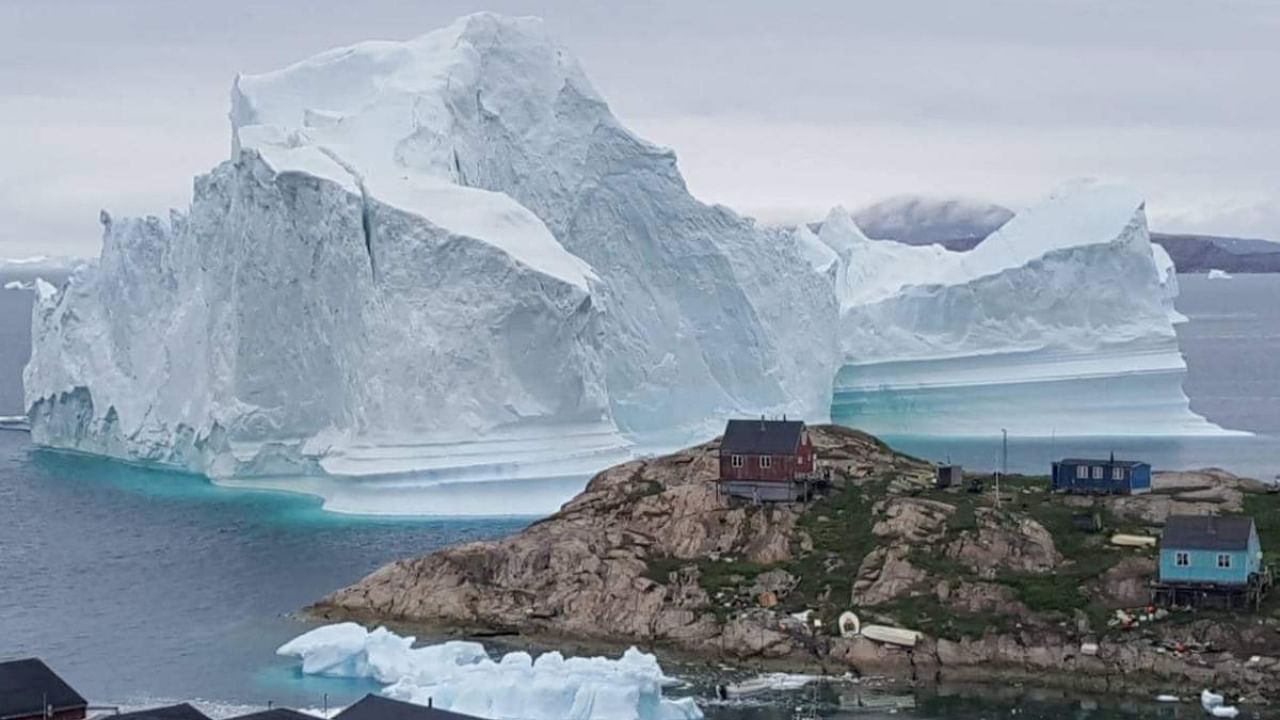
A giant iceberg seen behind a settlement in Greenland.
Credit: Reuters Photo
New Delhi: The Greenland ice sheet is expected to undergo abrupt losses if the global average temperature remains between 1.7 and 2.3 degrees Celsius above pre-industrial levels, a study has said.
However, subsequent cooling to below 1.5 degrees Celsius may mitigate ice loss, but only if the cooling takes place within a few centuries, the study published in the journal 'Nature' said.
The study was conducted by a team of researchers led by those at UiT The Arctic University of Norway.
The team conducted modelling studies, whereby in each model run, the global average temperatures were raised to up to 6.5 degrees Celsius above pre-industrial levels until the year 2100. After this, they gradually reduced the temperatures over durations ranging from 100 to 10,000 years.
Their analyses indicated that even if the global mean temperatures peaked at about 6.5 degrees above pre-industrial levels by 2100, the so-called 'overshoot', a subsequent cooling within a few centuries could prevent a complete collapse of the ice sheet and consequent sea level rise worldwide.
"Our results underline that even if we do not manage to stay below 1.5 or 2 degrees (Celsius) of global warming within the coming decades, and temporarily cross the critical temperature threshold of the Greenland ice sheet, we still have a chance to act," said lead author Nils Bochow.
"We found that the ice sheet reacts so slowly to human-made warming that reversing the current warming trend by cutting greenhouse gas emissions within centuries may prevent it from tipping," said co-author Niklas Boers from the Potsdam Institute for Climate Impact Research and the Technical University of Munich, Germany.
The authors, however, explicitly emphasised that the slow response of the ice sheet does not imply that humanity should slow down its endeavours to combat climate change.
"Even just temporarily overshooting the temperature thresholds can still lead to a peak in sea level rise of more than a metre in our simulations. The higher the temperatures rise, the more difficult it will be to bring them down to safe levels in the long term. This is why we need to act fast and keep global mean temperatures below 1.5 degrees Celsius," said Boers.
It has been estimated that the melting of the Greenland ice sheet has contributed more than 20 per cent to the observed sea-level rise since 2002.
The Paris Agreement of 2015 aims to limit the effects of climate change by containing the global temperature rise this century to well below 2 degrees Celsius.